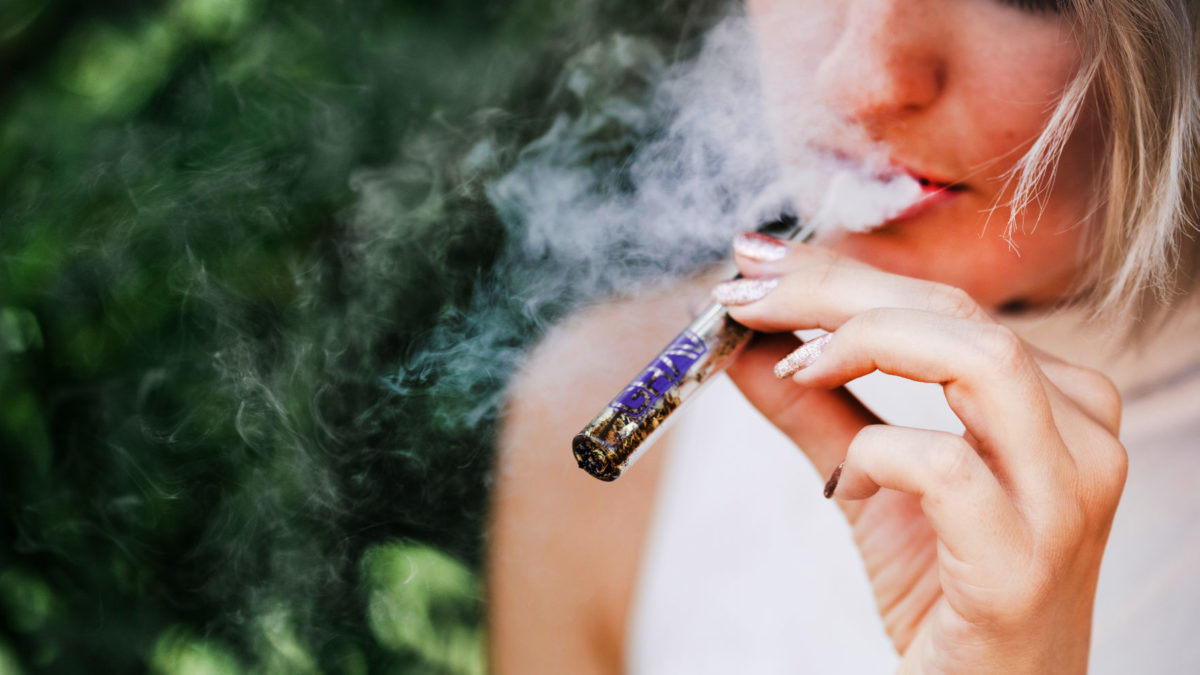Ro S., an educator who did not want to use her full name, has battled crippling anxiety and depression her whole life.
She has been on multiple antidepressants. Almost 15 years ago, her father died suddenly. Recently, her mother was diagnosed with early onset Alzheimer’s.
“That kind of brought everything on in an extreme way,” said Ro, a Philadelphia resident.
She turned to cannabis oil for relief.
“It calms me down,” she said. “That typical stoner mentality is not the case. I work every day. I’ve never ever, ever – and I’m 42 – missed work because of it.”
Research into the effects of cannabis products on mental health is in its infancy, with a handful of studies showing that they can help ease anxiety.
Still, many people, Ro included, are turning to weed as an alternative to traditional antidepressants and anti-anxiety medications, finding cannabis products to be particularly effective at dulling the edge on their anxiety and lessening the stress posed by the hurdles of daily life. They’re not smoking weed to get “fucked up,” but rather to cope and become more functional human beings, users said.
Cannabis has two major components: the psychoactive THC and the non-psychoactive CBD, which have opposing effects on anxiety. THC can increase anxiety, especially at high doses, while CBD is said to reduce the anxious effect THC provides and “can also decrease anxiety on its own, particularly in situations that normally provoke anxiety,” according to Stevenson. This has been shown in healthy human volunteers and in animal tests, he added, noting that more research is needed and that other tested medicines and therapies are available for anxiety in the meantime.
Dr. Mikhail Kogan, medical director of the George Washington Center for Integrative Medicine, said that vaping or taking CBD products sublingually makes the most sense because the effects reach the brain more quickly and more fully. Taken orally, as, in the form of gummies, about 20 percent of the CBD reaches the brain, Kogan said.
“We don’t actually know how to dose it,” Kogan said, saying that every patient was an N-1, a scientific term meaning that each patient becomes his or her own experiment. The best approach is to start with a low dose and slowly titrate up until the desired anxiety relief is achieved, he added.
Therapy is very important to get at the root of what is causing the anxiety in the first place, especially “for people who have failed other approaches for anxiety, it [CBD] is a reasonable alternative,” Kogan noted.
Although she still takes Zoloft, Ro has given up her other medications in favor of vaping CBD oil some mornings before work and in the evenings after stressful days.
“I need to chill out,” Ro said. “My brain is going a mile a minute. It helps me organize my thoughts and do what I need to do for the day or go to bed and get rest for the next day.”
Ro has even gotten a medical marijuana card for her mother, who experiences a lot of anxiety and frustration related to her Alzheimer’s. “When she gets frustrated, she cries, unfortunately, a lot,” Ro said, noting that vaping “calms” her mother down.
Carrie S., 37, of Philadelphia, smokes weed on a regular basis as a way of helping her deal with the anxiety of having a chronic health condition. Carrie suffers from Ehlers Danlos Syndrome, which means her body doesn’t produce quality connective tissue.
“I’m like a poorly constructed house,” she said. “You hang a picture, and the door flies off the hinges.”
She is in constant pain from joints hyper-extending and becoming dislocated, including her tailbone, which is “excruciating,” according to Carrie. She also has a more general, constant pain resulting from the syndrome. “I feel like I’ve been poisoned,” she said. “It just hurts on a cellular level.”
––
“I like weed because it’s very reliable. I know that it will help with a good number of my symptoms better than any pill I’ve ever taken.”
– Carrie, 37, pastry chef, Philadelphia
––
But Carrie has not found cannabis to be particularly effective for pain. Instead, she smokes marijuana most days to help with the anxiety produced by her disease, worried that what she does next may cause her more discomfort.
Carrie did not want to use her full name because she does not have a medical marijuana card. She always buys her pot from dealers recommended by a relative or friend and tries to maintain consistent relationships with individual sellers.
“I feel [the psychoactive effects] a little bit,” said Carrie, a pastry chef, who mostly smokes in the evening. “But it’s not inebriating. I have more control over what I focus on… I can read an article and concentrate on reading and not focus on how my tailbone is hurting.”
Carrie pursued getting pain medication for a long time, but when she finally got an appointment at a pain clinic, the doctor told her she was too young, and he wouldn’t treat her. In the meantime, Carrie has given up on conventional medicine to help the symptoms of her syndrome – the intense pain, constant nausea, the crippling anxiety that she is going to hurt herself further – and has turned to moderate doses of pot as a way to cope.
“I like weed because it’s very reliable,” Carrie said. “I know that it will help with a good number of my symptoms better than any pill I’ve ever taken.”
Erica Daniels, of Horsham, has found that to be the case for her 14-year-old son Leo who has autism and was having extended “meltdowns” on a daily basis before she began giving him medical cannabis three years ago.
“Literally, I’m a single mom, I was like, ‘I don’t know what I’m going to do,’” Daniels recalled. In that moment of desperation, Daniels decided to use cannabis in the form of tincture drops under Leo’s tongue three to four times a day.
“The anxiety is not gone, but it’s so much better, and the quality of life is so much better,” said Daniels, explaining that anxiety and obsessive-compulsive behaviors are often some of the top symptoms for someone with autism. “His whole mood changed from the time he started [using the tincture]. He would perseverate on not going somewhere or not doing something. Now we can go out in the community more.”
One notable example came when Daniels was finally able to take Leo on an airplane so they could go to Disney World.
Daniels founded a nonprofit called Hope Grows for Autism, aimed at improving the lives of families affected by autism through education, advocacy and research. She said that she has spoken to a lot of caregivers of individuals with autism who find cannabis products also help with their own anxiety and stress, improving life for the entire family.
A Bala Cynwyd mother and educator who wanted to remain anonymous for fear of public and professional retribution took prescribed medications to cope with her anxiety and ADHD. She gave all of them up more than a decade ago.
Finding herself suffering again, especially from anxiety, she discovered the benefits of vaping CBD oil about three years ago.
“I don’t love big social situations, and I’m nervous about my kids,” said the 43-year-old. “It takes that anxious feeling away.”
But she doesn’t like to tell people she vapes, despite the fact that she has found cannabis to be “a really useful tool.”
“I think there’s a little bit of a black cloud over it for some people because they think it’s an illegal drug,” she added. “So many states are legalizing it. We need to legalize it [in Pennsylvania]. It’s time.”
TWITTER: @CHARRISBOND





